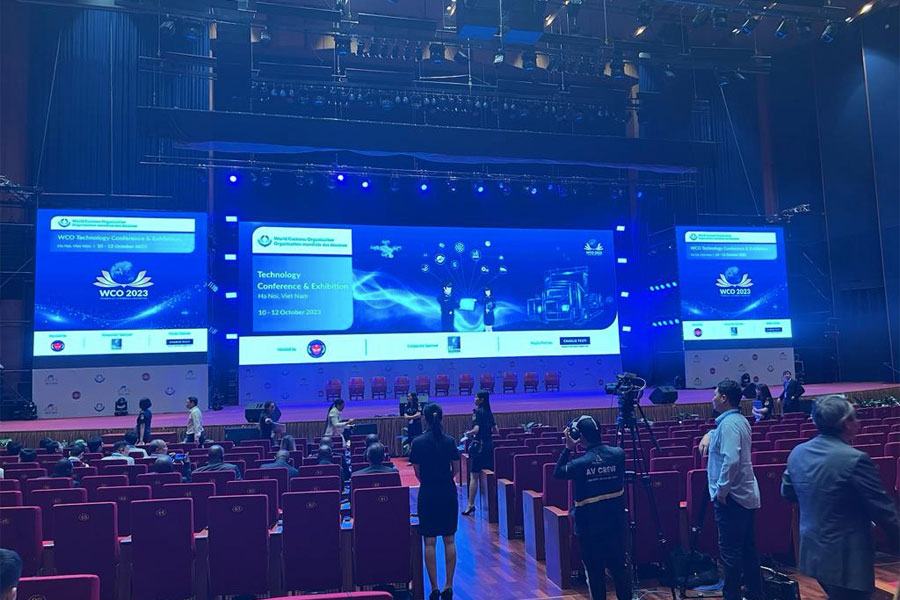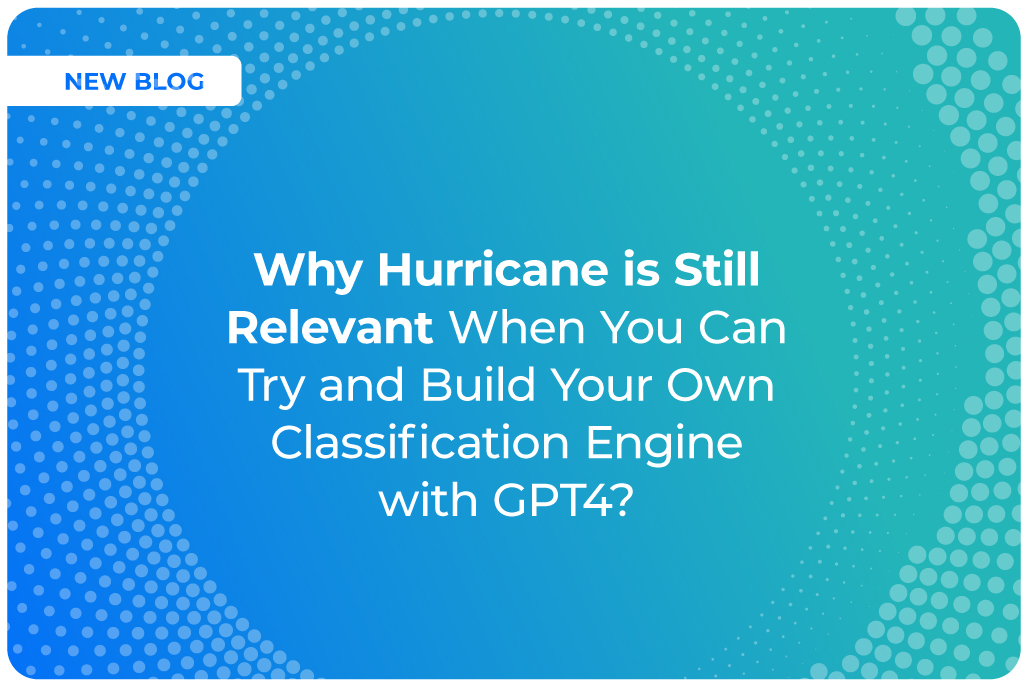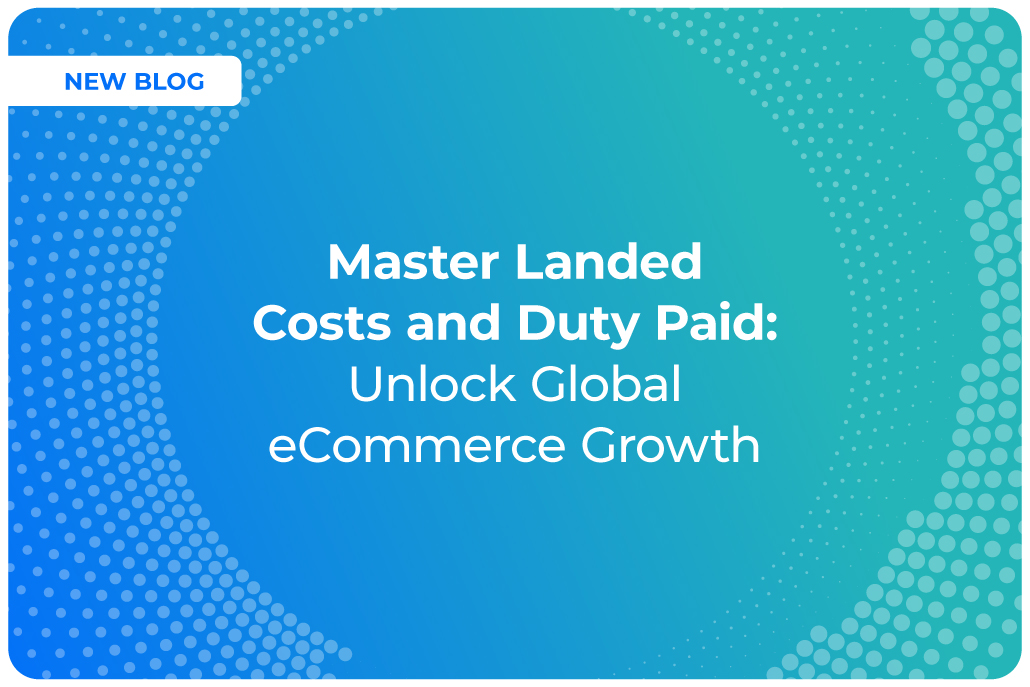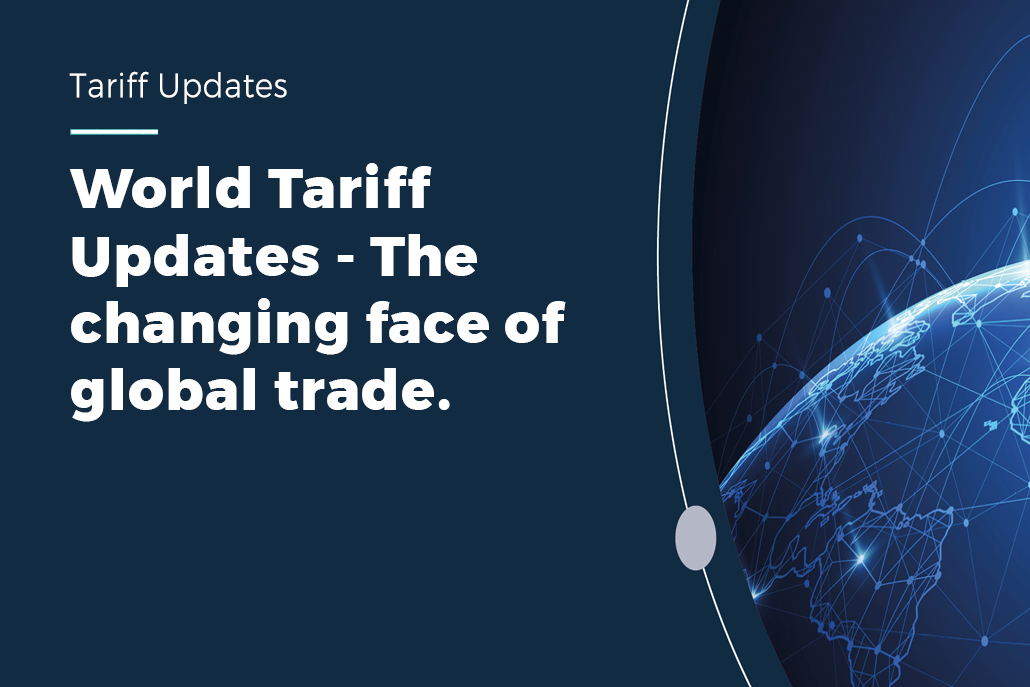By Martin Palmer, Hurricane Commerce Co-Founder
The 2023 World Customs Organization (WCO) Technology Conference was an exhilarating event, where Customs, Trade Experts and other professionals from around the world gathered in Hanoi to explore the pivotal role of technology and data in the realm of international trade, customs clearance, and risk management.
I was fortunate to attend the 2023 WCO Technology Conference, on behalf of Hurricane Commerce, and it yet again proved to be an invigorating event.
Under the theme “Embracing the Digital Age: Leveraging Technology, Fostering Innovation, and Nurturing the Next Generation of Customs Professionals”, a great deal of the three days was spent discussing the growing importance of complete, accurate and timely data. It was agreed by all that data is pivotal to the future of International Trade, Customs Clearance, and Risk Management.
The Role of Artificial Intelligence and Machine Learning in International Trade
Inevitably at any event where data is discussed, the subject of Artificial Intelligence (AI) and Machine Learning (ML) was high on the agenda. A key session focused on the potential of data analytics, AI and ML to transform customs operations and border management by helping customs administrations better understand and analyse vast amounts of data generated by international trade transactions, supply chain networks, and border operations.
The conversations revolved around the ways in which these technologies can play a crucial role in promptly detecting potential risks and irregularities in real-time, empowering customs officers to proactively thwart illicit activities like smuggling and money laundering.
Simultaneously, the utilisation of data analytics, artificial intelligence, and machine learning can streamline legitimate trade operations by alleviating administrative burdens on lawful traders, enhancing compliance, and expediting the clearance procedures.
However, the adoption of these transformative technologies also presents a spectrum of challenges. These include the necessity for robust data management and governance frameworks, ensuring data privacy and security, and addressing ethical concerns surrounding the use of AI in decision-making. Conversations at the conference ranged from speculations about the consequences of AI and ML, from the extreme notion of all jobs being replaced by computers to genuine concerns regarding the accuracy and security of data.
It was generally agreed that AI and ML have a crucial role to play in the future of international trade, customs clearance, and risk management. However, the consensus emerged that these technologies would complement existing processes rather than replace them, enabling employees to optimize their time and skills to focus on more complex issues.
The Role of Data in Customs Clearance
In the age of information, data has evolved into a critical asset. For customs authorities, data is a treasure trove of insights that can enhance security, streamline trade, and facilitate economic growth. From tracking shipments to identifying potential risks and compliance issues, data can empower customs agencies to make informed decisions, reduce operational costs, and enhance the overall efficiency of their operations.
One common issue observed among customs authorities globally is the absence of a clear data strategy. Many customs agencies are developing their own solutions and systems independently, resulting in a lack of standardisation and interoperability. This not only leads to inefficiencies but also causes substantial duplication of efforts between countries. It’s time for customs authorities to recognize the importance of crafting a comprehensive data strategy that aligns with their objectives and promotes data sharing, collaboration, and innovation.
Public-private partnerships offer a solution to many of the challenges facing customs authorities. These partnerships bring together the strengths of both sectors, combining the resources and expertise of governments with the innovation and efficiency of private enterprises. When applied to customs data management, these partnerships can lead to better technology, streamlined processes, and improved security.
Customs authorities play a pivotal role in connecting nations and facilitating international trade. Rather than adopting punitive measures towards the private sector, customs should actively encourage and incentivise cooperation. By doing so, they can harness the full potential of public-private partnerships to improve data sharing and enhance overall security and efficiency.
The 2023 WCO Technology Conference shed light on the transformative potential of data, AI, and ML in international trade and customs operations. While challenges lie ahead, the conference inspired optimism that, when harnessed appropriately, these technologies will bolster the efficiency of customs operations, enhance security, and contribute to the growth of international trade. The conference served as a testament to the need for embracing the digital age and the promising future it holds for customs professionals and international trade practitioners and cross-border trade in general.
How Hurricane Can Help Facilitate International Trade
In conclusion, the data-driven age demands a clear data strategy for customs authorities worldwide. Customs agencies should acknowledge the value of data, work to standardize their data management practices, and consider the potential benefits of public-private partnerships.
By doing so, customs authorities can harness the power of data, such as that provided by Hurricane’s Kona API, to enhance security, streamline operations, and foster economic growth. Borders may divide, but customs can connect, and by leveraging data effectively, they can do so in a way that benefits all stakeholders, from governments to businesses and citizens. Contact the Hurricane team to find out more about our solutions and how they enable streamlined customs clearance.













